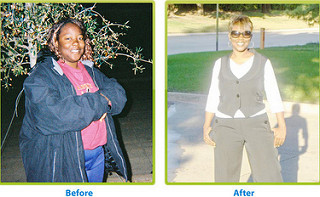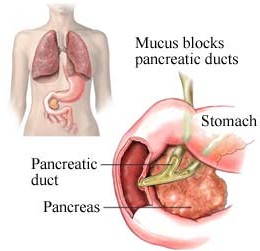Why Should I Care About Calories?
Frankly, I care more about the taste or flavor of the food I take than calories.
And yet it's extremely important for one to understand how calories contribute toward how weight is gained or lost before they can be effective in their own weight loss programs.
Simply put, a calorie is just a unit of measurement of energy, just like foot (the singular of feet) is a unit of measurement as in "a man is six feet tall".
Food, including drinks, gives the body the energy it needs for everything it does, from repairing damaged cells to singing to speaking to sleeping. Thus, a calorie is a measure of the energy in food and drinks that we take as well as the enery in activities we do.
I'm not going into a biology lesson or science class but simply put, whether you gain or lose weight boils down to just ONE simple equation:
ENERGY INTAKE - ENERGY EXPENDED = WEIGHT GAIN OR LOSS
ENERGY INTAKE - this includes both food and drinks that you take that gives you the energy (or calories) you need to live, to work, to play.
Your energy intake is therefore dependent on these factors:
1) Knowing which food has less (and more) calories - fats give you more than two times the calories from proteins and carbohydrates
2) Choosing the food you take - the proportion of proteins, carbohydrates and fats will determine your calorie intake
3) Choosing how much to eat - if you eat more than you can use between meals, the body will store the excess calories as fat
4) Deciding when to eat - if you eat too late at night, you tend to put on weight as your body uses up less calories at night and when you are asleep
5) Deciding how often to eat - if you let yourself become too hungry, you will tend to snack and put on unwanted calories
ENERGY EXPENDED - this is actually the amount of energy (or calories) we expend when we work, play, walk, jog, run, swim, or even breathe.
In this case, it will help to know:
1) What activities will burn more energy - high impact activities like running, ball games need more energy but are not necessary suitable for one who is overweight
2) What causes a higher metabolism (which means a faster rate of burning the calories) - the more muscle tissue you have, the more calories you burn
3) Is it necessary to exercise - generally, the more exercises you engage in, the more calories you use up
4) How often to exercise - if it's brisk walking, you can do that almost everyday but if it's some more strenuous exercise like running, you should typically exercise at most up to 5 times a week.
Thus, at the end of each day, whether you gain or lose weight depends on the net result of your energy intake versus your energy expended.
When a person eats more food than the body needs - that is, if you "overload your tank" - the body converts the excess calories into fat. Eating less food than the body needs will cause a person to lose weight.
The number of calories needed by a person each day depends on how much energy a person's body uses. For example, an active sports man needs more calories than an adult who leads a sedentary lifestyle, such as a clerk who works all day in the office.
So, if you find yourself gaining weight, you are in fact taking in more calories than you need. To achieve weight loss or maintain your ideal weight, you need to watch your calories to some extent, even if you do not count them.
Related Articles
-
A Reliable Source For Weight Loss Tips
If you are working hard to lose weight and are unable to figure out h
-
5 Steps To Flatter Abs
5 Steps To Flatter Abs If you’re like a lot of people you’ve w
-
Is A High Protein Diet the Best Way to Lose Weight?
Is a high protein diet the best way to lose ? There have been so
-
4 Ways To Avoid The Post-Protein-Shake Bloat
Protein shakes can be a good on-the-go meal or a reliable protein supp
-
Does It Matter When You Get Your Workout In?
Does It Matter When You Get Your Workout In? By PositiveMed-Te
-
Creative Weight Loss Ideas To Try Today!
There is much more to losing weight than just improving your appearan
- DON'T MISS
- Dieting Without Your Family
- Weight Loss Tips To Help You Get The Body You Have Always Dreamed Of
- All The Weight Loss Advice You’ll Need
- Plate Like A French Woman
- Healthy Ways To Lose Weight And Keep It Off
- Child Obesity
- Best Weight Loss Information To Get Healthy And Fit Body
- How to Lose Weight and Gain Muscle
- 9 smart ways to lose weight without exercise
- 7 Questions To Ask Yourself Before You Start A Diet




